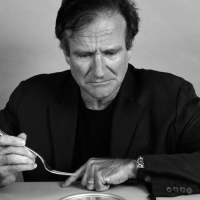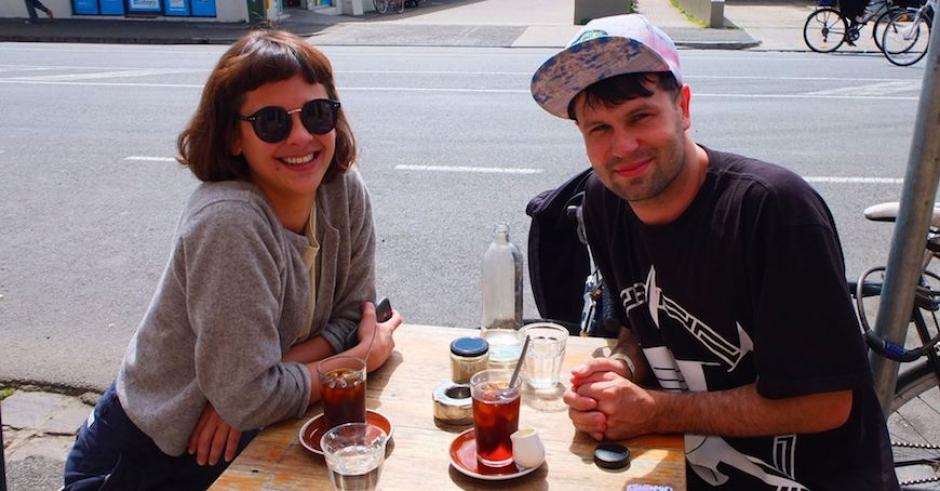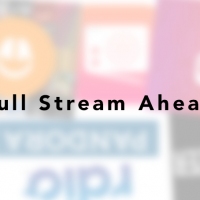 Helping Friends & Family With DepressionJust some personal experience worth sharing on a day we're all thinking about it.
Helping Friends & Family With DepressionJust some personal experience worth sharing on a day we're all thinking about it.

Chat Window To The Soul
Meet the Melbourne guy having coffee with every single one of his 1000+ Facebook friends.
"The social network seems to have changed from something resembling an intimate social gathering into a bustling city street." - Forbes Magazine.
“I’m embarrassed to admit that I use Facebook on my phone to help me get up in the morning the moment my brain is semi-alert…this makes me feel pretty weird, the more I think about it.” This is admission of Melbourne’s Matt Kulesza, 28, who believes he “falls under the category of heavy-to-unhealthily obsessive use of Facebook”. Unless held to ransom about our exact Facebook usage, it’s likely many of us would ashamed to voluntarily reveal the true extent to which this social network shapes our personal daily lives. But it’s pretty bleeding obvious that we’re all in the same “unhealthily obsessed” boat as Kulesza: over 13million Australians are now using Facebook every month, spending up to three hours a day on social media. Browser extensions like TimeRabbit, FacebookRunner and mobile apps like Menthal, that allow us to specially monitor own Facebook usage, are the apps backing the stats up. Kulesza has devised a project to counteract some of that ‘weirdness’ by substituting some of the time he spends on Facebook with real-life time: 1000+ Coffees will see Kulesza endeavour to meet up with every single one of his 1,080 Facebook friends, one-on-one, for a coffee in real life – a project he estimates will take around three years to complete.
Kulesza is currently a student of international studies and Korean at Uni; you may already be familiar with him from his time spent in now-defunct rad Melbourne psych-pop-rock band Rat v Possum. According to our mutual mate - former Melbourne Thousands Editor Robbie Coleman (with whom Kulesza shared an espresso martini last week – Coffee #11), Kulesza “is always doing odd projects/things/haircuts”. It was through Coleman that I came to be aware of 1000+ Coffees: Coleman posted Kulesza’s Tumblr link (on his Facebook) at the project’s beginning earlier this month, referring to it as “a passive ‘fuck you’ to the accumulation of friends you don't really know/once stalked/befriended on Myspace but haven’t seen since 2001”. I then contacted Kulesza, also via Facebook (whatever conclusion we come to about Facebook by the end of this article, let it be known that the thing is a damn handy tool for millennial journalists), with the need to know more.
First, we cover some project logistics. Of his approach to selecting with whom to have coffee with from his friends list, Kulesza “will just try to make it as natural as possible… if someone sends me a message, or posts something that I find interesting, I’ll send them a message. Just as my rule of adding people was before this project, I don’t add people I’ve never met IRL.” Kulesza is more than happy to shout the coffees, although notes on his Facebook Page that “two coffees at roughly $3.50 each x 1,080 people = $7560, so if anyone offers to pick up the bill that's cool too and much appreciated!” In regards to international friends, if Kulesza happens to find himself abroad, he’s all for it, although won’t necessarily travel to knock off people on the list. Also, any recent friend additions get added to the list and extend the project (so you could request Kulesza right now and potentially be in the running for a long mac). And how does Kulesza submit the invitation to potential project participants? “Hey! Wanna get coffee sometime this week?” Yep – straight out social interaction – wild. Kulesza’s not out to make any huge psychological claims or write a report to submit it to Facebook or attract media attention – at this stage it’s personal, and he’s documenting each coffee meeting with a written reflection on this Tumblr account. However, says Kulesza, “I’d be lying if I didn’t say that I don’t have slight pipe-dreams to put it all in a coffee table book or exhibition or something when its over.” (Although perhaps this project is at its self-reflexive best contained within the Internet for now; it might be a bit much to ask people to get off Facebook for long enough to have coffee and tackle a book!)
Kulesza goes into more detail on the genesis of 1000+ Coffees, which came from his belief that lately Facebook has reached a “stagnation point” for a lot of people: “For me, Facebook had become this very antisocial, impersonal experience. One day I looked at my 1000+ ‘friends’ on Facebook and thought ‘who even are these people?’. Facebook acts as a life log of all of these different relationships you’ve had over the years that while you have the ability to very easily open up a new tab and see vaguely where any person is at with their life (or how they choose to present it), it doesn’t add to furthering any real relationship with that person. I was wanting to inject a bit of real life back into my user experience of it…to see more of an URL/IRL crossover happen…to catch up with people who I thought were interesting enough a person to click that ‘Add Friend’ button.”

People You Can Like, But Can’t Lean On
“Facebook is this life-log of random connections, some completely meaningless.” – Matt Kulesza
Forbes Magazine fortifies Kulesza’s observed tendency of the medium towards the increasingly impersonal, with their reflection that “The social network seems to have changed from something resembling an intimate social gathering into a bustling city street”. For many people, their Facebook networks have become large enough so as to be unmanageable, as you’d know if you’re active on the medium, befriending several new profiles each week over a number of years - people pile up. To further ponder Kulesza’s question ‘who even are these people?’, those making our Facebook experience so ‘impersonal’, we can look to some current definitions of friendship and its requisite substantiality - on and offline. The Daily Mail recently offered a means by which we can classify a ‘true friend’, stating that a true friend is one “you go to in an emergency…someone we can talk to about anything - those that support and love you regardless of the situation". In the online Facebook world, ‘love’ and ‘support’ are qualified through the metrics of the ‘like’ and the ‘favourite’ – ego-feeding tools used by advertisers to track their campaigns and propel messaging our way – any support we give is remarketed back at us – the key word here being ‘at’ – on Facebook, we talk at each other, not to each other. Thus, The Daily Mail’s definition of friendship as ‘someone we can talk to’ would seemingly rule out plenty of Facebook ‘friends’, given we talk ‘@’ them, given we wouldn’t turn to them in an emergency, given we wouldn’t expect their support (beyond perhaps a ‘like’ or thumbs up every now and then).
How then, do we classify Facebook friends whose aren’t ‘true friends’ (notwithstanding those instances in which the two do cross over)? The UK law has ruled on this for us - back in 2008 a British judge presided over a harassment case on social media, in which a woman accused her former boyfriend of hounding her by sending her a friend request. The ex was cleared of the charge after the magistrate accepted his argument that the contact was highly innocuous because being Facebook friends could not be defined as “friendship in the traditional sense”. Yet, when we accept a friend request, we give these “non-traditional friends” a window into all aspects of our social lives, and the power to share their opinions about it - which is fairly generous of us. Kulesza sees the positive side of large Facebook friends lists, of the “busy city street”: “I love that Forbes quote, but for me I find that a positive change. Like I mentioned, I like that Facebook is this life-log of these random connections, some completely meaningless. I recently met a guy in Seoul who was drinking by himself in a park. We ended up chatting for about four hours and then added each other on Facebook. I can’t wait to catch up with him again.”
Weak Ties, Real Benefits
“Catherine: It does make me very sad that you can't handle real emotions, Theodore.
Theodore: They are real emotions! How would you know.” – Her (film)
Kulesza’s reflection here echoes something psychologist Mark S. Granovetter spent a lot of time working on back in the ‘70s, before Zuckerberg was even born. In 1973, Granovetter published what would become a highly-cited article about the strength of ‘weak ties’, citing that opportunities come to us not just through our close friends with whom we have contact regularly and deeply, but often through weak ties with people we don’t know well, but whose social networks overlap our own. The idea that social networks rise and fall on distant connections was then reinforced by Connected author Nicholas Christakis in more recent years – Christakis used new social data to show that people two or three connections away from us can have very important impacts on whether we feel happy or sad, and can impact our lifestyle choices. However Christakis stated that for virtual connections to have any positive benefit for our networking, those connections must “be real or feel real.” An experiment Facebook conducted themselves a few years back would seem to prove that indeed, many of us feel that our Facebook friendships are pretty damn real, evidenced in their finding that what our Facebook friends post can affect our real life emotions. In a 2012 experiment on the emotional impact of Facebook on over 70,000 users (the ‘emotion contagion study’), Facebook routinely adjusted its users’ news feeds — testing out the number of ads they see or the size of photos that appear — often without their knowledge. Dubbed the “emotion contagion” experiment, Facebook would selectively remove overly positive content from peoples’ feeds, to test what effect that had on the statuses or ‘likes’ that they then posted or reacted to. “We felt that it was important to investigate the common worry that seeing friends post positive content leads to people feeling negative or left out. At the same time, we were concerned that exposure to friends’ negativity might lead people to avoid visiting Facebook,” said the Facebook researcher who led the study, Adam D. I. Kramer (of course, if you’re on Facebook more, there’s more time for you to see the ads that provide most of Facebook’s revenue). The researchers found that social media moods were contagious. The people who saw more positive posts responded by writing more positive posts. Similarly, seeing more negative content prompted the viewers to be more negative in their own posts. Facebook didn’t ask for explicit permission from those it selected for the experiment, however argued that its 1.28 billion monthly users gave blanket consent to the company’s research as a condition of using the service. Facebook users and critics suggested that the company had crossed an ethical boundary. Kulesza “finds [the emotion contagion experiment] fascinating in an ‘evil genius’ kind of way. I can see how people would be upset about this, but it doesn’t really bother me - I don’t have any notions that any social media is remotely ‘private’ or sacred a space and despite having a fully private profile, I use it in such a way with the expectation that everything is public.”
Large networks doesn’t necessarily have to mean shallow connections. As humans, we connect with different people in different ways – why not bring back the term ‘acquaintances’? It’s a great descriptor that straddles the balance between affiliation and distance – you can know everything about an acquaintance, but at that point in time, you don’t know them (although, as Christakis says above, any Facebook connections have to “feel real” enough for those people to be able to make an impact on us). Many awesome friendships begin as work or social acquaintances – Facebooking in bedrooms and kitchen tables and hotel rooms, people have built whole businesses, made profitable sales, connected with school friends, gained travelling buddies, fallen in love – why not consolidate those ‘weak ties’ in order to gain benefit? It’s instinct, after all, like Kulesza says – something made you want to reach out and click ‘Add Friend’, some sense of good things to come. Why feel ashamed about spending time nurturing these acquaintances online? Kulesza’s keen for others to use his template as a basis for their own mindful re-connections: “I was chatting to a friend about the concept of mindfulness being a theme of the project, and taking the time out of your day to spend one-on-one time with another human and get to know them on a new level. I’m not sure where this very basic idea of having coffee could go, but I’d like to encourage anyone to do their own 10+, 100+, 1000+ coffee projects with people on Facebook they wouldn’t usually think it get in touch with.”

With Coffee, You Can’t Hide
“I’m actually the most excited about the potentially awkward coffees.” – Matt Kulesza
Despite the positive benefits of having loads of Facebook friends, Facebook seems to have made minimal moves to rectify the increasing difficulty individuals are having in being able to actually manage these large online friend networks – acquaintances we’d like to maintain, but that we don’t necessarily want to network with. We have been given the ‘Hide’ option, in order that we may curate our News Feed and see more of the content we care about. Recently this morphed into the ‘Unfollow’ option, which is basically choosing not too see anything from a friend on Facebook – pretty much a cut and dry way to silence someone entirely, much like a cowardly person might do after a bad date instead of just letting the other party know they don’t wish to continue relations. Indeed, there are a few friends surely everyone has kept on Facebook, unfollowed on Facebook but not defriended – perhaps in the interests of ongoing business or friendly relations or to keep up appearances – with whom a real life coffee might prove the awkwardest of occasions – i.e. former employers, people you’ve had a row with, ex-lovers. When asked about how he will approach these potential encounters during 1000+ Coffees – the “somebodies that you used to know” – Kulesza is optimistic: “I’m actually the most excited about potentially awkward coffees,” he says, “I might have some apologizing to do here and there to some ex-partners, which I’m also looking forward to doing. The day before I started the project I wrote a status explaining the project and kindly asked anyone who didn’t want to be involved to delete me. I think there were two or three people. Ultimately, I figure if we can’t even tolerate each other for a single coffee, there’s no point in being Facebook friends.”
Close, But Far
“It’s a lonely business, wandering the labyrinths of our friends’ and pseudo-friends’ projected identities, trying to figure out …who will listen, and what they will hear.” - Stephen Marche
Does Kulesza believe Facebook fosters happy communities of like-minded people, that it benefits society, allowing us to form meaningful connections from ‘weak ties’, and communicate better with our true friends? Or to the inverse – does he think Facebook fosters disconnection, frustration, and nurtures social anxiety? “I think it depends on what you use Facebook for, and what sort of life you live outside of the ‘book,” is Kulesza’s well-considered answer, “Ultimately, though I don’t see Facebook as bringing us closer together, it definitely makes life - and communicating - a lot easier. But next time someone likes your status? Send them a message, and get a coffee.”
Yes, do that. And say ‘yes’ if Kulesza – or another acquaintance of yours – asks you to grab a coffee anytime soon. You have everything to gain, and nothing to lose. “Scanning your friends’ Facebook status updates - “passive consumption” - correlates to feelings of disconnectedness,” offered Stephen Marche in his great article ‘Is Facebook Making Us Lonely?’ in The Atlantic a year or so ago. “It’s a lonely business, wandering the labyrinths of our friends’ and pseudo-friends’ projected identities, trying to figure out what part of ourselves we ought to project, who will listen, and what they will hear.” Kulesza’s 1000+ Coffees project has certainly made us wonder how often we – deliberately or otherwise - choose to duck and weave past strangers in Forbes’ metaphorical “busy street” – using Facebook as an all-too-easy buffer for what is perhaps a mild case of social anxiety, easily induced by our technology-rich environment of cold interfaces and dense connectivity, where more hours a day are spent in front of screens than sleeping.Yes, we’re accumulating friends, fans and followers at a rate of knots, thanks to this incredible social network designed to bring us together, yet we’re stuffing them all into our giant security blanket, then on our loneliest nights, cancelling coffees with friends and stumbling home, tired, to our computers, pulling that blanket up to our ears… Unable to properly grasp how radically alone we truly are.
 Helping Friends & Family With DepressionJust some personal experience worth sharing on a day we're all thinking about it.
Helping Friends & Family With DepressionJust some personal experience worth sharing on a day we're all thinking about it.
 Full Stream AheadWe talk the future of online music with some industry friends.
Full Stream AheadWe talk the future of online music with some industry friends.